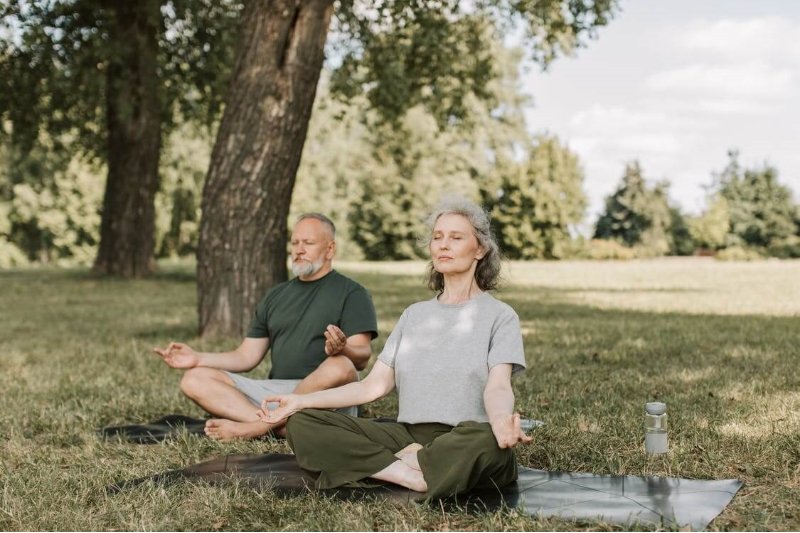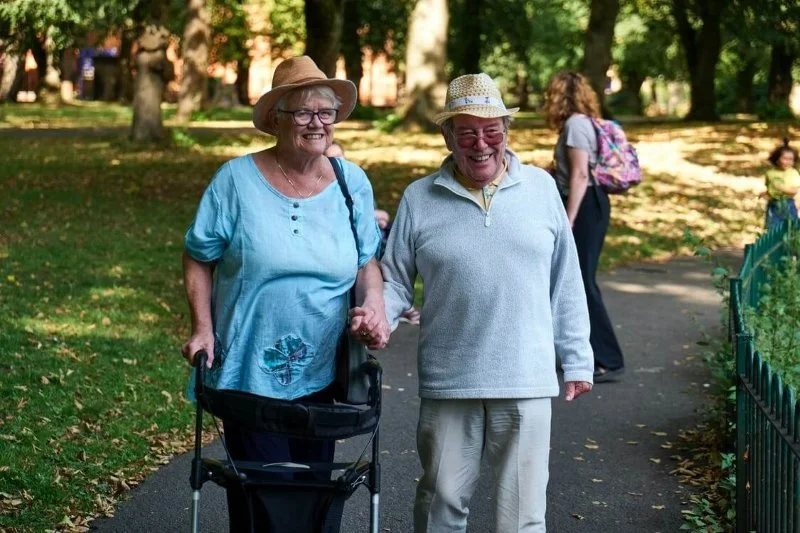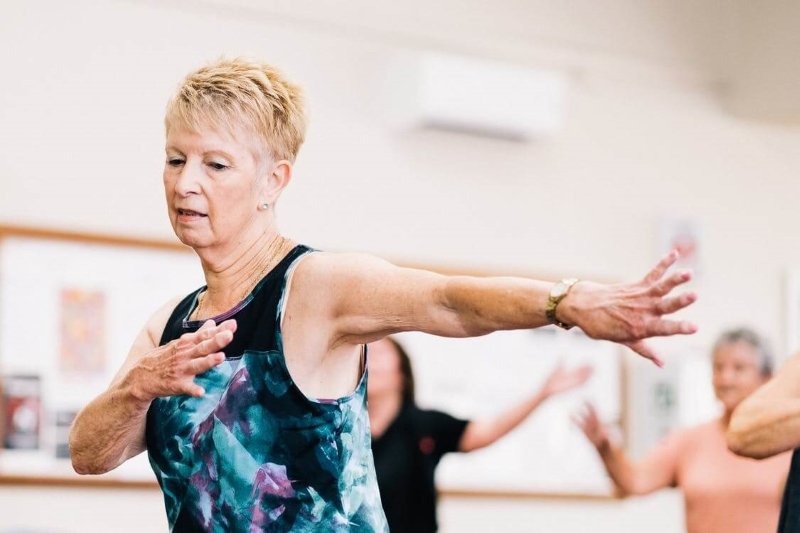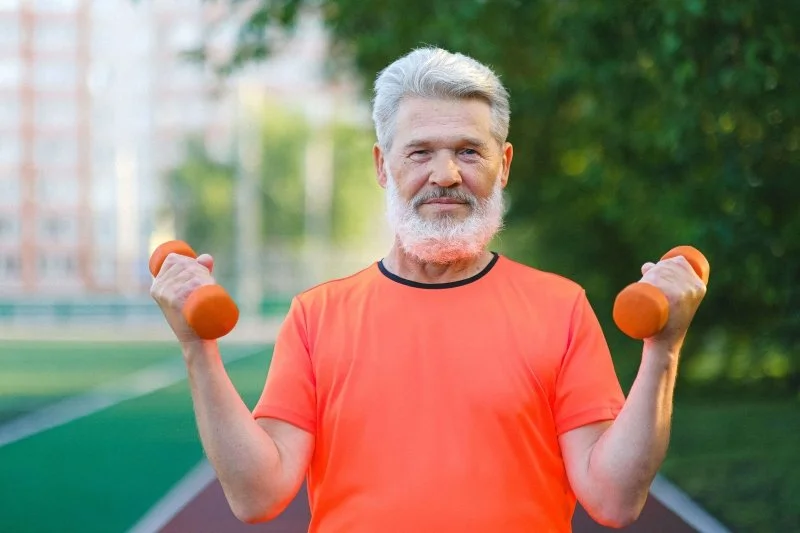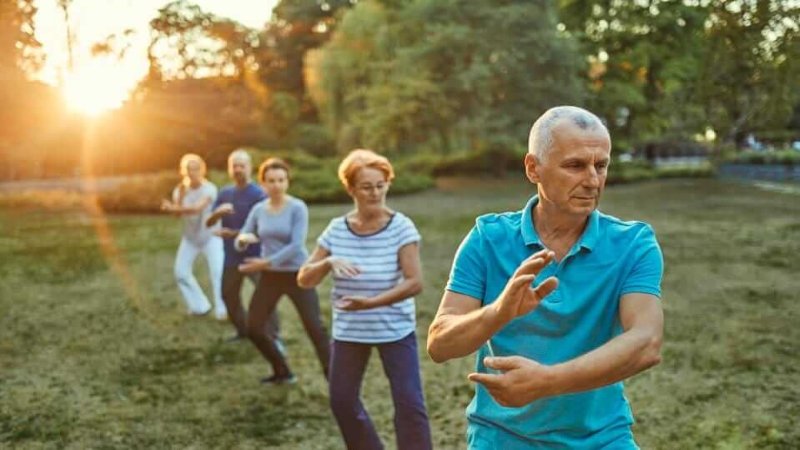Simple Exercise Tips for Seniors
In this guide - Simple Exercise Tips for Seniors:
Benefits of Physical Activity for Older People
Making time for physical activity in your day-to-day life is crucial in reducing the risk of injuries and serious health conditions such as heart disease. A sedentary lifestyle can lead to hardened arteries which make people prone to heart attacks and strokes. As we become more vulnerable as we age, these issues can have a huge impact on our quality of life.
Regular exercise can also help in maintaining your blood pressure, cholesterol levels, and healthy body weight. Physical activity lowers the risk of falls and fights osteoporosis by strengthening muscles, tendons, bones and ligaments.
You can also use your exercise as a way to bond with your friends and family. Family-friendly activities such as gardening or walking in the park are great ways to get your workout for the day while also making sure you stay connected with your family.
How much exercise should you do?
The Australian Government’s Department of Health and Aged Care recommends at least 30 minutes of moderate-intensity workouts for people over 65 years old. However, if half an hour is too taxing, you can always start with just 10 minutes a day, and gradually increase the duration after a few weeks of consistent daily activity. You can schedule at least three sessions of balance and flexibility workouts and mix them up with two sessions of strength training and aerobics exercise.
Daily activities such as climbing the stairs, commuting, or even doing the laundry need flexibility and balance so you should look into prioritising these activities. Your cardio and strength training, on the other hand, are crucial for stronger muscles and bones so you can carry on with carrying your shopping bags or simply maintaining your house.
What exercises can you do?
According to the New Zealand Government Ministry of Health’s Guidelines on Physical Activity for Older People, there are various physical activities that you can explore to maintain your health and strength. These exercises can be grouped into four categories and they have their own benefits to seniors’ overall quality of life.
Aerobic Endurance Exercises
Aerobic endurance exercises are workouts that require a person to move a specific group of muscles for a sustained period. Also called cardiovascular workouts, these activities can help strengthen your heart and lung while also aiding in weight control. These are the ideal activities if you want to maintain the energy to play with your grandchildren. Aerobic endurance exercises include the following:
Walking
You don’t always need fancy equipment to do your exercise. Even something as simple as doing the groceries, meeting up with your friends, or strolling the park with your family can be a form of physical activity. As long as you can feel your heart rate gradually increase, walking can do wonders for your health especially when done regularly.
Swimming
Swimming is one of the best exercises as it can improve your heart health while still being gentle on the joints, therefore, reducing the risk of injury. Exercising in the water can also be a form of resistance training as it engages your muscles as you push against the water.
Cycling
Hopping on a bicycle and riding in the park is great for coordination as it exercises multiple muscle groups in your body. A leisurely ride also has low-impact movements, making it easy on the joints. Getting a dose of Vitamin D can also boost your mental health while improving your bone health.
If you want to stay indoors, stationary bikes are great alternatives as you can adjust your speed to suit your preference. Whether you do it in the park or inside your home, the important thing is you increase your heart rate, break a sweat, and stay fit.
Dancing
If you want to add some flare into your daily routine, you can try dancing. You can look into dance classes in your area and get your hour’s worth of exercise for the day. Dancing is a fun and effective way to get your heart rate going while meeting new people.
Resistance Training
According to the World Health Organization, resistance training can help increase muscle mass and strength while improving your power and endurance. Keeping your muscles in good condition through strength training makes everyday tasks such as carrying groceries or climbing stairs much easier. Here are some resistance training workouts that you can explore:
Lifting Weights
You’re never ‘too old’ or ‘too weak to lift weights. It doesn’t always have to be massive barbells. Lifting one or two-kilogram dumbbells are great for building strength. Try bicep curls, tricep extensions and chest presses to strengthen your upper body.
Squats
Squats are a type of bodyweight exercise which means you are using your weight for your exercise. When done properly, they are ideal for muscle conditioning. Do a few reps a day to build your strength but always look out for your form as you don’t want to place undue stress on your knees or throw out your back.
Stair Climbing
Even climbing the stairs can be a form of exercise so when you’re shopping at the mall or commuting, you can opt to take the stairs instead of an elevator or an escalator to incorporate resistance training into your daily life. Climbing up and down a few flights of stairs gets your leg muscles going so you can strengthen them over time. Just make sure to take a break on every floor when you need it!
Balance Exercises
Working on your balance, especially as you approach your senior years, is critical as it helps prevent falls. Here are three simple exercises you can do the improve your balance:
Yoga
Yoga may seem intimidating at first but it is one of the best forms of workout for the elderly. There are poses that you can practice to improve your balance including the tree pose where you raise one foot off the ground and place it against the opposite ankle, shin or thigh. Holding this pose for a few minutes can help improve your balance over time. If you want a safer and low-impact option, you can also do chair yoga. You can use any chair in your house and it’s less strenuous on the muscles, joints, and bones.
Heel-to-Toe Walking
Doing a few heel-to-toe walks can help improve your balance as well. Think of this exercise as if you were walking on a tightrope. Here’s how you do it:
Stand in an upright position
Place your arms on your side and extend them upright
Face forward, keep your eyes straight and chin level with the ground
Take your first step by placing the heel of your right foot in front of the left one, making sure that your right heel touches the tips of your left foot’s toes
Repeat the previous step until you’ve made at least ten steps forward
You can easily do this in your living room or garden. Before doing heel-to-toe walks, make sure you’ve cleared the area to avoid any hazards should you misstep.
Tai Chi
Research from the Australasian Journal on Ageing measured the health benefits of Tai Chi to the elderly. Twenty-three participants were asked to practice 24 forms of Tai Chi and in three months showed significant improvement in their balance and muscle strength. Tai Chi is also known to reduce stress and anxiety. Joining a class in your local community or senior centre can be a fun way to improve your physical and mental health.
Flexibility Exercises
Ageing sometimes comes with the occasional achy joints but you can prevent that by improving your flexibility. These exercises are designed to help you maintain a full range of motion as you get older. Try these exercises to improve your flexibility:
Pilates
While Pilates is an amazing workout for all ages, seniors can particularly benefit from practising it regularly. It is a gentle exercise that focuses on flexibility, breathing, and core strength. There are various Pilates workouts available but Chair Pilates, Mat Pilates, and Reformer Pilates sessions are the most ideal for older men and women.
Stretching
Stretching is one of the simplest yet most effective ways to improve your flexibility. Raising your arms overhead while seated with a straight spine can increase the range of motion in your shoulders and upper back. Before your strength training or aerobic exercises, you can also incorporate your stretching workout to avoid any injuries during a strenuous workout.
Potential Risks and How to Avoid Them
The benefits of regular exercise for older people greatly outweigh the risk of being injured, but you should still look into any pre-existing condition that may exacerbate with an intense workout. We can’t emphasize enough just how important exercise is, especially when you’re in your senior years. However, overexerting yourself is also not the way to go about it. While we’ve given you a good list of exercises to engage in, here are specific activities that you should avoid for your safety:
Squatting with weights or dumbbells
Bench and leg presses
Long-distance running
Deadlifts and kettlebell training
High-intensity interval training (HIIT)
Crunches, push-ups, or planks
Stay strong and healthy
Moderate physical activity, combined with a proper diet, each day can help maintain and improve your health and well-being. Any activity is better than none at all, so try to stay active no matter your age, weight, health, mobility or ability. And it is always best to consult your doctor before beginning a new exercise regimen, as they can help develop a workout plan that aligns with your personal goals.
Tunstall has a range of Connected Care devices such as personal alarms and fall detectors to support you in improving your health and wellbeing. Contact us today to learn more about how we can help improve your fitness in your old age.
Keep reading: 6 Ways To Reduce Fall Risks
Get your personal alarm today:

